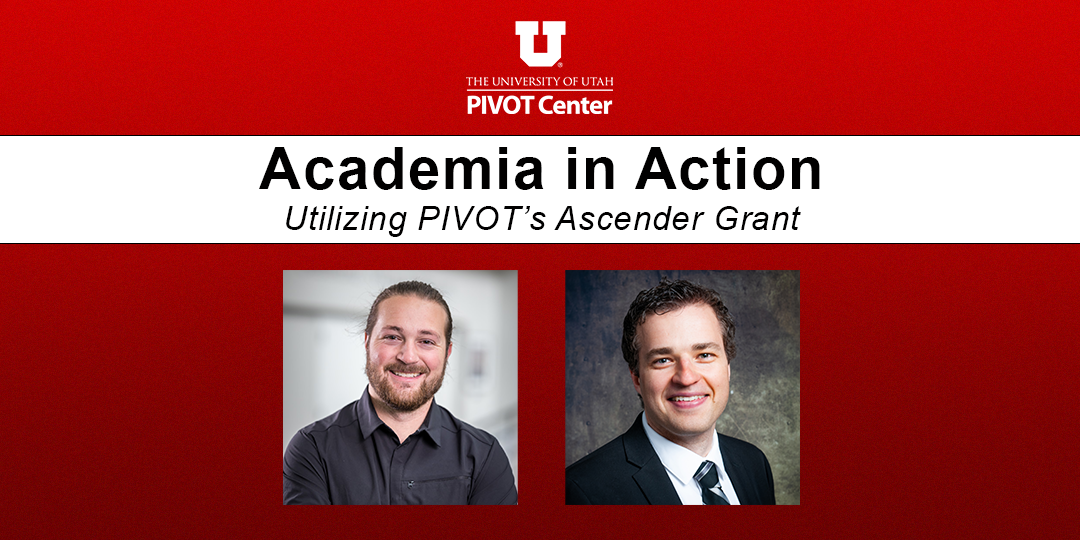Academia in Action:
Two of BME's own: One Alum, and One current faculty Utilize PIVOT's Ascender Grant

This story was originally posted on the PIVOT Center’s website and can be viewed here.
The Ascender Grant program is one of the ways PIVOT Center advances technologies for the University of Utah. The program helps inventors bridge the funding gap between research and commercialization by providing support for technology development, proof of concept and preparations for additional investment by entrepreneurs, investors and potential licensees.
“Often, the funding provided in research grants does not cover all the development and de-risking necessary to prepare an innovation for investment from entrepreneurs, investors and industry,” said Kyrsten Woolstenhulme, PIVOT director of innovation management.
Researchers can use the grant in a variety of ways to support their efforts. “The program facilitates technical development, market research and other de-risking activities – such as validating scalability or performance verification – to advance an innovation to a licensable and investable stage,” Woolstenhulme said.
Jacob George
Jacob George combines his interests in engineering and medicine as a U professor in the electrical & computer engineering and physical medicine & rehabilitation departments as well as directing the Utah NeuroRobotics Lab.
Much of George’s work sounds like stuff straight out of a science fiction novel: prosthetic hands that can bring back a user’s sense of touch, exoskeletons that restore movement, wristband devices that can turn the lights off by thought, and more. This technology has become reality in his lab.
For George, his commercialization journey started by clicking the “Disclose your innovation” button on the PIVOT website. From there he has been able to tap into PIVOT’s resources and connections to partner with groups beyond campus, resulting in sponsored research agreements and funding for George’s lab.
George is actively working with a company that is interested in integrating his lab’s wristband device with smart home technology. After receiving PIVOT Ascender Grant funding to produce a prototype, the company began supporting his lab’s ongoing research by providing letters of support and donating equipment.
Jan Kubanek
Mental and neurological disorders are the world’s leading cause of disability, according to University of Utah biomedical engineering professor Jan Kubanek. Over the years, treatments have been developed for some of these disorders, but oftentimes these treatments are inadequate.
“It’s a major issue because in about one in three cases across the board, when you look at mental and neurological disorders, people are resistant to current treatments,” Kubanek said.
Kubanek and his lab at the U have looked for ways to treat this patient population. A solution they have converged on is “neuromodulation,” where the doctor would directly modulate the regions of the brain that are malfunctioning. While their approach has shown promise in earlier trials involving monkeys, Kubanek and his team are now focused on proving it will work for human use.
Kubanek’s team has received funding from the National Institutes of Health and Focused Ultrasound Foundation, and they recently made use of the Ascender Grant.
Kubanek and his team are using the grant “to fund clinical testing of the approach and device in patients with major depression,” he said. “That helps us to speed up the patient recruitment and collect the data faster than we could otherwise without this help.”

